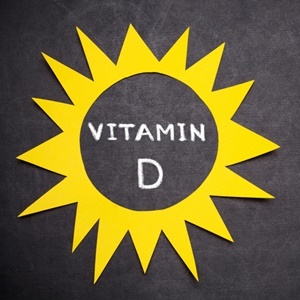
A small study suggests women plagued by menstrual cramps may find relief with vitamin D3, raising hopes that the dietary supplement could one day be an alternative to the painkillers and birth control pills that doctors now recommend.
But the treatment involves a mega-dose of vitamin D – 300,000 IUs – which made one expert add a "don't-try-this-at-home" warning.
"This study does suggest (vitamin D) may have a role for menstrual cramps and menstrual pain, but I certainly would not recommend taking doses this high at the present time," said Dr JoAnn Manson, who heads the division of preventive medicine at Brigham and Women's Hospital in Boston.
"The jury is still out," said. "This is not a definitive trial by any means."
Vitamin D and cramps
Although over-the-counter painkillers and oral contraceptives can help with menstrual pain, the drugs have side effects and so aren't an ideal option for long-term relief, Dr Manson and Dr Elizabeth R. Bertone-Johnson write in a commentary on the new study, which was reported in the Archives of Internal Medicine.
Vitamin D is known to decrease the production of cytokines and prostaglandins, which are believed to be a main cause of the cramps. Studies have suggested prostaglandins may also play a role in conditions like fibromyalgia and joint pain.
In the new study, researchers in Italy randomly assigned 40 women with painful periods to receive wither an oral dose of 300,000 IUs of vitamin D3, or an inactive liquid.
All of the women had relatively low vitamin D blood levels to begin with, although Dr Manson said they were still higher than what is typically seen in the US And the lower the levels, the more pain women said they experienced.
Pain reduction
Two months later, women who had taken the vitamin rated their pain 2.3 points lower than baseline on a scale from 0 to 10, and none of them took painkillers anymore.
By contrast, 40% of women in the placebo group still took the drugs and reported no reduction in pain, according to Dr Antonino Lasco and colleagues from Universita di Messina. Dr Manson said it's unclear if women without vitamin D deficiency would also benefit, and the optimal treatment dose and duration remain murky.
And there may be side effects from mega-doses of the nutrient. For instance, an Australian study found that older women getting 500,000 IUs per year had an increased risk of falls and fractures.
The US Institute of Medicine recommends that women aged 19 to 50 get 600 IUs of vitamin D a day, with upper tolerable levels of 4 000 IU daily. Higher doses can damage the heart, blood vessels and kidneys by raising calcium levels in the blood.
Some vitamins do not work
A dose of 300 000 IUs every two months would land a woman at an average 5 000 IUs a day – above the tolerable limit.
"I think it would be reasonable if a woman is having severe menstrual cramps to try a moderate dose and see if she gets relief, but stay below what the Institute of Medicine recommends as the higher level," said Dr Manson.
She warned that some studies have shown that more vitamins aren't always better. For instance, high doses of beta-carotene may up the risk of lung cancer, whereas too much vitamin E may lead to strokes and prostate cancer.
"We should consider the other mega-dose vitamin studies to be cautionary tales," Dr Manson said. "It is import that the enthusiasm for vitamin D not outpace the evidence. We don't want everyone taking 30 000 IUs for preventing menstrual cramps."
(Frederik Joelving, Reuters Health, February 2012)
Read more:




 Publications
Publications
 Partners
Partners















